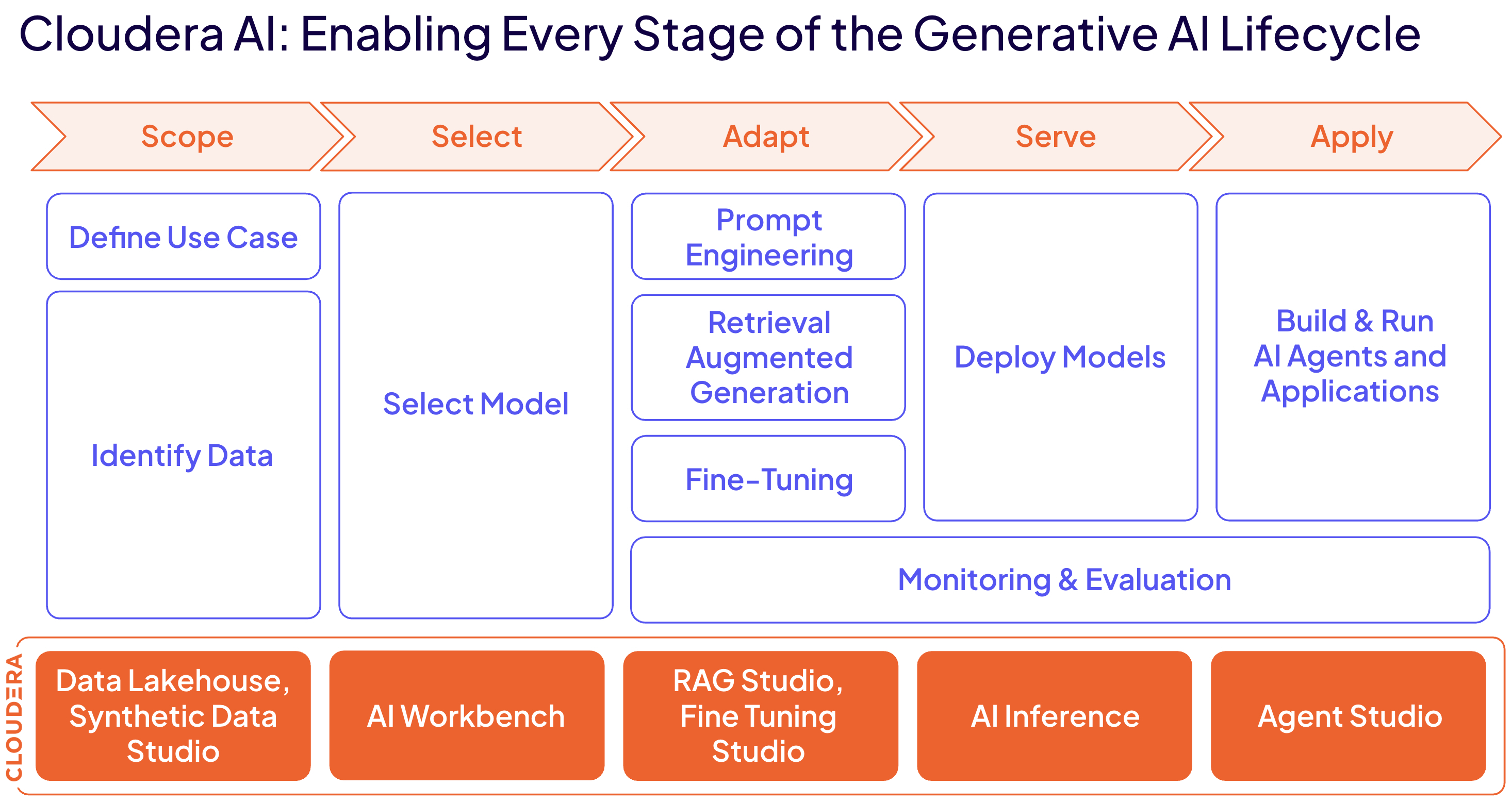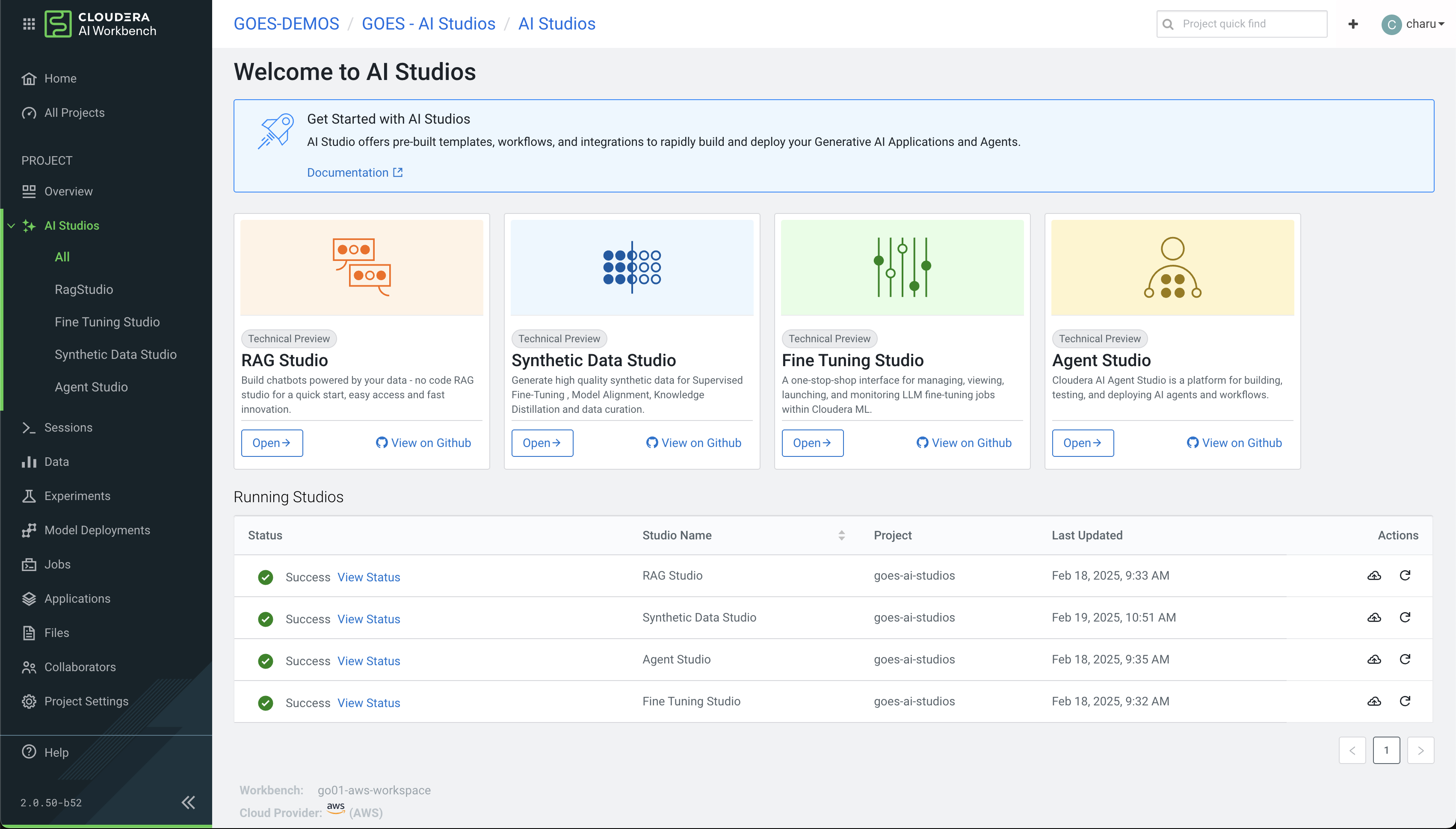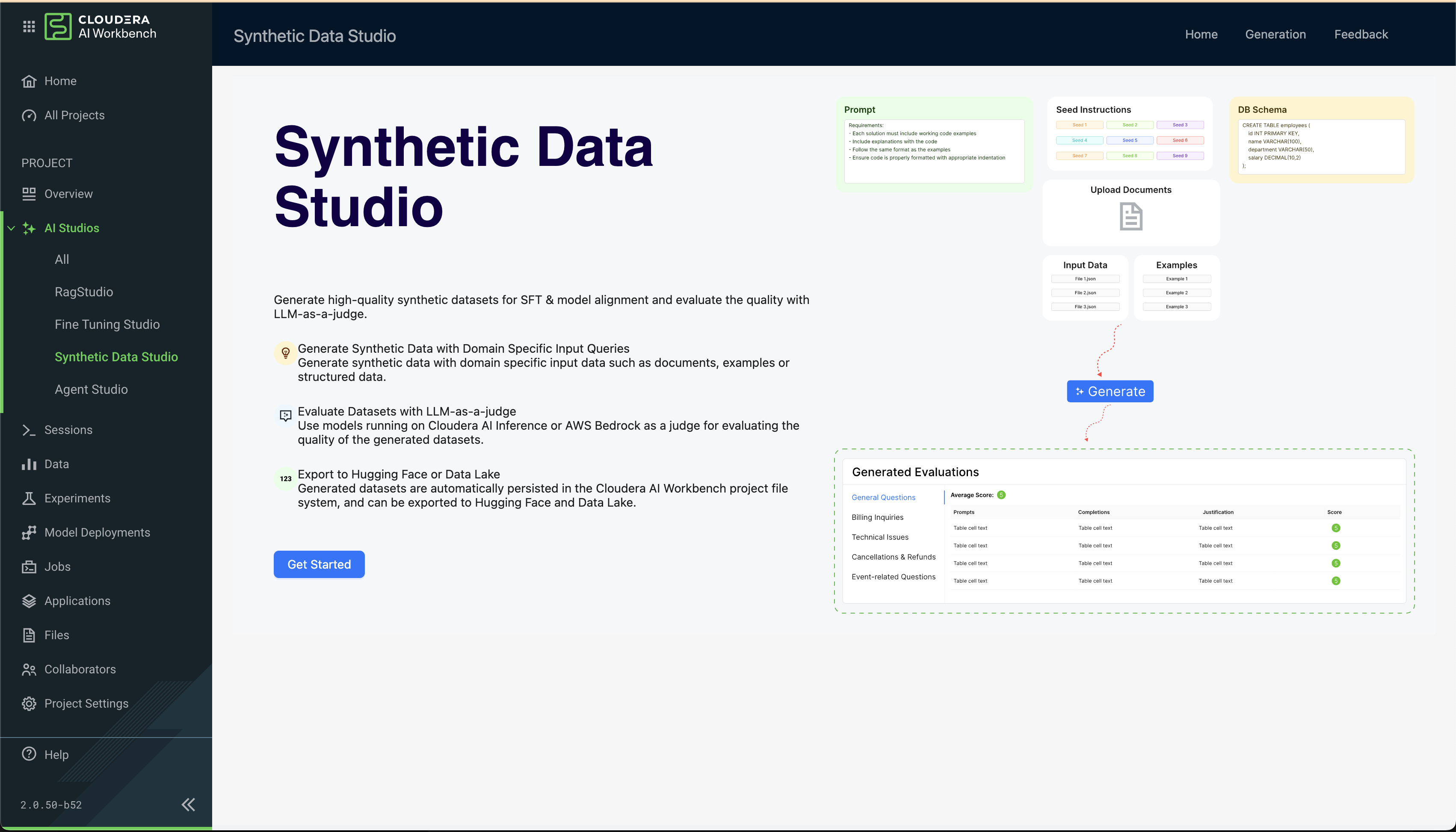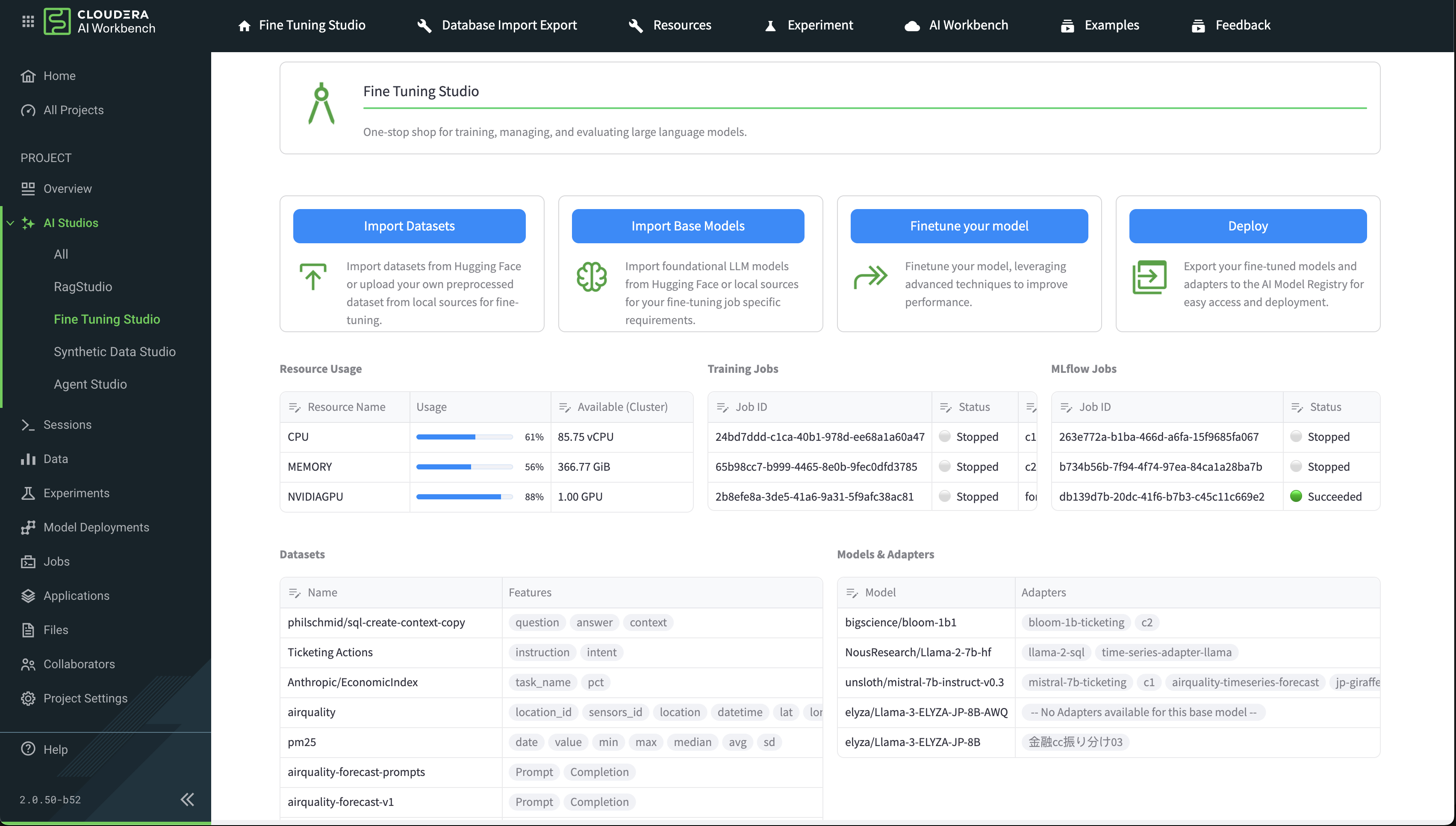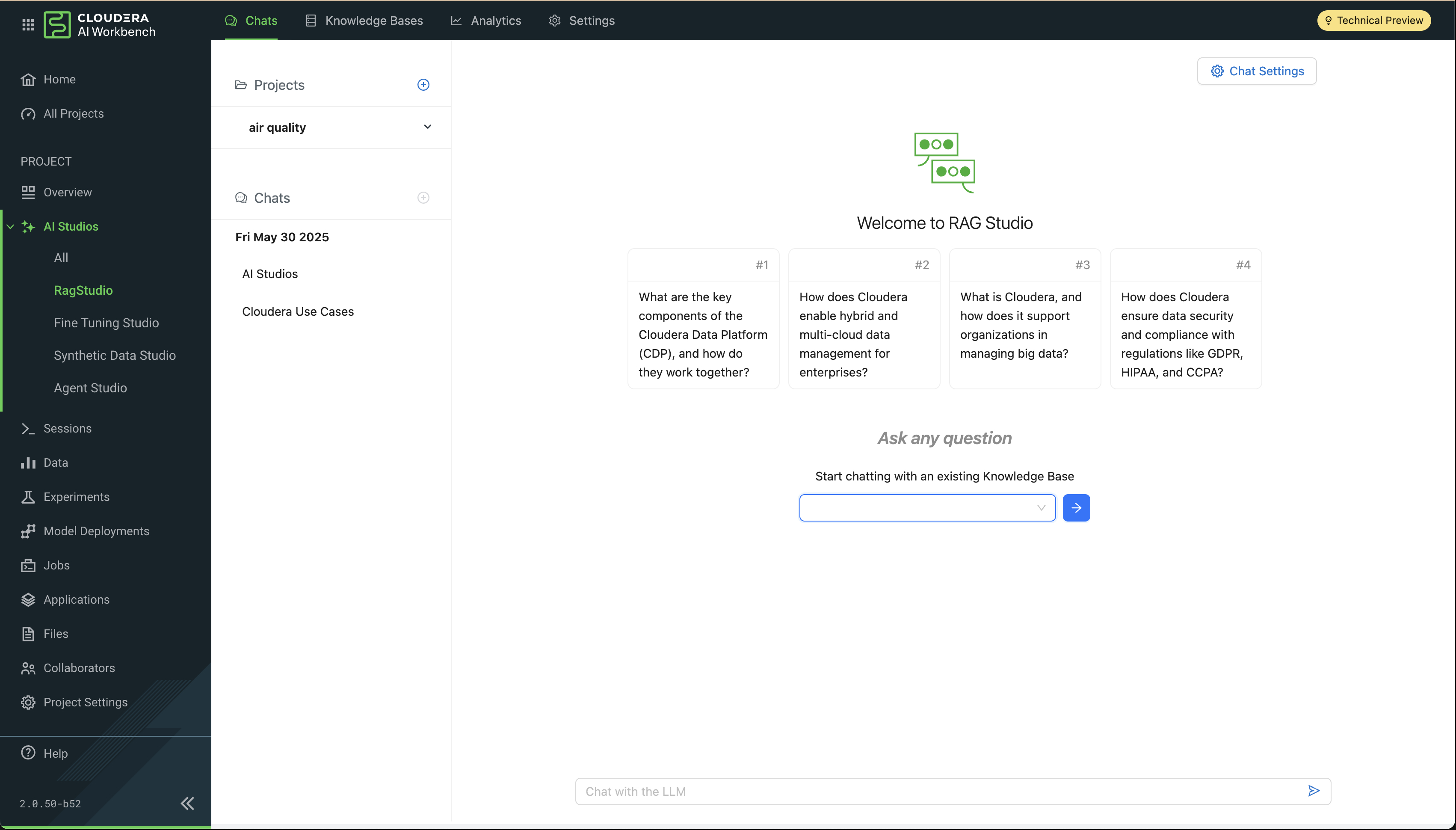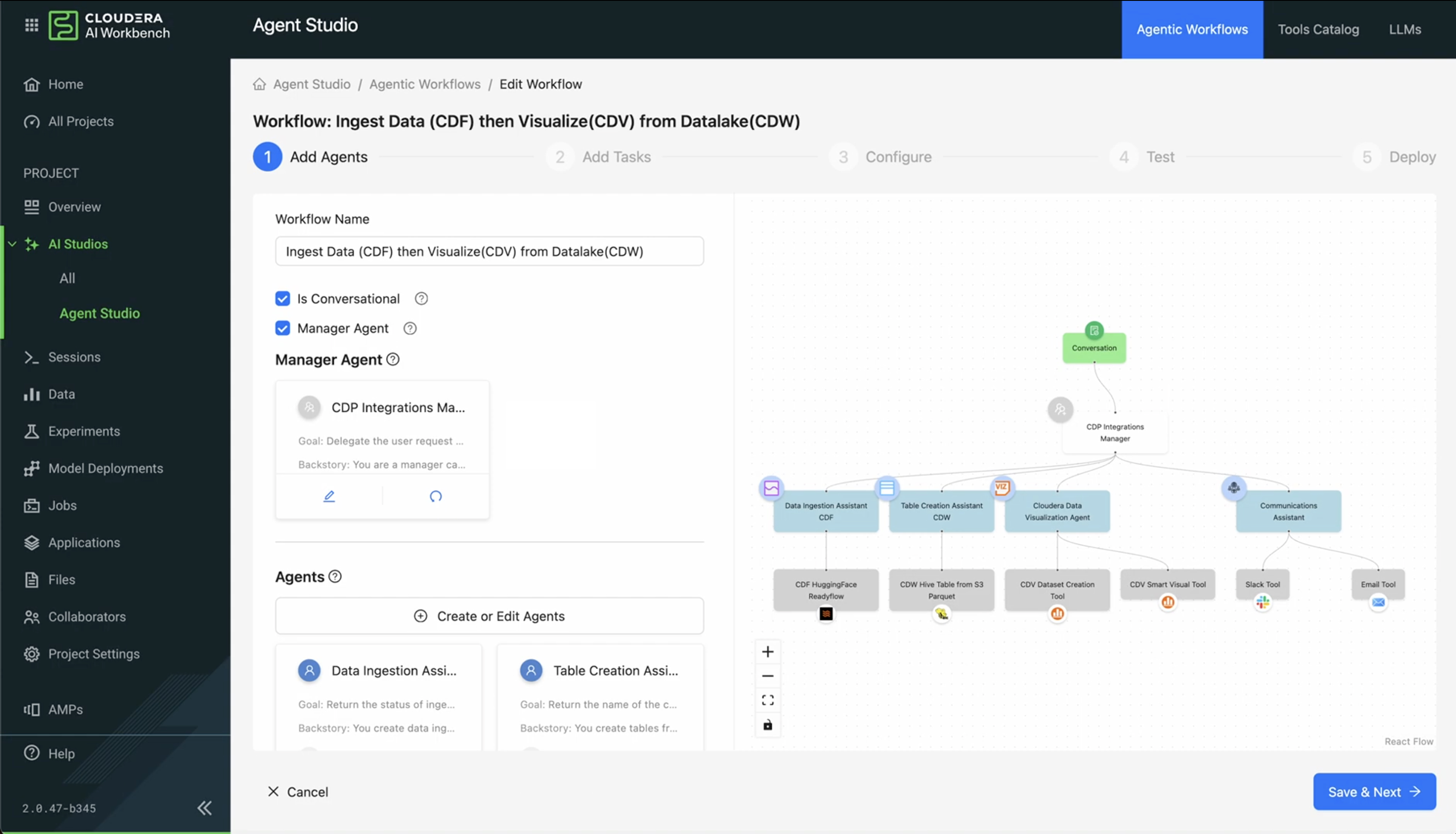
The demand for AI-driven applications is surging, and enterprises have reached an inflection point where they can no longer afford fragmented, siloed development.
Traditionally, AI development is done by data scientists or machine learning experts with deep expertise in multiple tools and frameworks. But now a new class of builders has emerged—developers, not experts—who are enthusiastic about using the power of generative AI (GenAI) to solve their real-world use cases but who often lack specialized AI skills. Enterprises need solutions to simplify the development complexity for these GenAI builders, giving them an easier, faster path to production while maintaining enterprise-grade security, governance, and scalability.
Additionally, conventional enterprise software upgrade cycles are too slow to match the pace of AI innovation. This delay puts organizations at risk of building solutions that are outdated before they are even deployed. Enterprises need adaptive, modular solutions that evolve in-step with the AI landscape, ensuring that their solutions remain cutting-edge.
Cloudera AI Studios can help solve these challenges: by providing modular, no-code tools with high-code extensibility, these studios accelerate AI adoption by guiding developers through various stages of the AI application lifecycle. AI Studios are designed to not only streamline development but also equip a broader range of users with knowledge about the underlying technologies—empowering organizations to solve meaningful business challenges with GenAI.
Democratizing AI Innovation: The Strategic Vision and Design Behind Cloudera AI Studios
Delivering real enterprise value with GenAI demands mastering distinct stages across the complete AI application lifecycle. We deliberately architected AI Studios to map directly to these critical stages, democratizing the entire process with intuitive, low-code tools accessible to all users—regardless of technical expertise.
By seamlessly guiding users through each development stage, our approach eliminates traditional barriers and dramatically accelerates time-to-value. Our comprehensive ecosystem addresses critical challenges across the GenAI lifecycle:
Synthetic Data Studio reimagines data availability by generating enterprise-grade synthetic datasets that solve compliance and data scarcity challenges.
Retrieval-Augmented Generation (RAG) Studio transforms model intelligence by seamlessly connecting foundation models with organizational knowledge—delivering contextually aware AI.
Fine Tuning Studio redefines model specialization through frictionless adaptation workflows that align generic models with specific domain expertise.
Agent Studio pioneers the next frontier of business transformation through sophisticated agentic applications that deliver measurable value across the enterprise.
The core design philosophies of AI Studios are:
Customizable across expertise levels
Interoperable functionality through AI development stages
Accelerated integration of open-source innovation
Customizable Across Expertise Levels
The artificial boundary between technical and non-technical users has historically limited innovation. Our architectural approach breaks down this divide and differentiates AI Studios from other low-code solutions by offering seamless switching between visual interfaces and full code environments—customizable to each user’s expertise and needs. These deliberate "escape hatches" prevent lock-in to proprietary black-box solutions with limited functionality, giving executive decision-makers confidence to invest in low-code solutions for serious AI development.
Our architecture builds on the strong foundation of the Cloudera AI Workbench—an established, enterprise-grade, self-service data science product with developer-friendly features like interactive notebooks, models, jobs, and applications. By accessing AI Studios within the AI Workbench, developers can begin with intuitive visual interfaces and transition to custom coding environments as greater control or expertise is required.
We designed AI Studios this way because of our strong belief that technical growth should be encouraged rather than constrained. Business developers with domain expertise can use the visual interfaces and collaborate effectively in the same environment with data experts using the coding interfaces—accelerating AI adoption across the enterprise.
Interoperable Functionality Through AI Development Stages
Each of the AI Studios is designed to be fully functional in a self-contained manner, yet can seamlessly interoperate with other studios through sharing resultant artifacts in the same project environment. This extends beyond just studio-to-studio integration—it encompasses the entire Cloudera AI platform. The studios integrate directly with the underlying AI Workbench and AI Inference services, creating an end-to-end system with consistent data and model governance throughout.
For example, Synthetic Data Studio can generate domain-specific training datasets that Fine Tuning Studio can then use to adapt a foundation model for agentic tasks. This specialized model can then be served by the Cloudera AI platform to power agentic applications orchestrated in Agent Studio, with contextual knowledge enhancement through RAG Studio. This deliberate multi-level interoperability enables organizations to build comprehensive AI solutions while still allowing users to have full flexibility in selecting which stages of the GenAI lifecycle they want assistance with and which they want to handle independently.
Accelerated Integration of Open-Source Innovation
We built each of the AI Studios as independent components capable of rapid release cycles aligned with the AI community's pace of innovation. This modular architecture allows AI Studios to leverage state-of-the-art open-source frameworks and swap underlying libraries without disrupting core functionality.
This reflects our belief that no single organization will drive AI innovation in isolation, and embraces open-source innovation as a way of contributing to a broader ecosystem of shared advancement.
Introducing Cloudera AI Studios
AI Studios provide a purpose-built experience targeted to each of the critical stages of the Generative AI lifecycle. The studios are Synthetic Data Studio, Fine Tuning Studio, RAG Studio, and Agent Studio.
Synthetic Data Generation Studio
The Synthetic Data Generation Studio provides users with powerful tools to create synthetic datasets for fine-tuning, model training or alignment, and evaluation. This studio offers a scalable and compliant alternative when real-world data is scarce or sensitive. By producing data that mirrors real-world patterns, the studio enables organizations to improve AI model and application robustness while ensuring compliance with regulations like CCPA in the US and GDPR in the EU.
Figure 3: Synthetic Data Studio within a Cloudera AI Workbench project
Fine Tuning Studio
The Fine Tuning Studio serves as a one-stop shop for customizing foundation models to meet specific business needs through increased model accuracy and domain relevance. Without it, fine-tuning would require writing extensive code and managing complex workflows. Instead, users can train, compare, and evaluate adapters against base models through a single interface. With built-in support for supervised fine-tuning (SFT), MLflow-based evaluation, and native integration with Cloudera AI Workbench and Inference, Fine Tuning Studio simplifies and accelerates the entire model adaptation process.
RAG Studio
The RAG Studio enables rapid development and deployment of RAG applications through a no-code interface. By integrating external knowledge sources with large language models (LLMs), users can create a more informed, context-aware AI application that excels at document search and question-answering tasks involving real-time, dynamic data.
Agent Studio
Agent Studio empowers enterprises to build, test, and deploy AI agents that combine the reasoning capabilities of LLMs with the operational strength of traditional software. Through native integration with the Cloudera platform, Agent Studio uniquely exposes the full suite of Cloudera’s enterprise-grade services—Cloudera Data Flow, Cloudera Data Warehouse, Cloudera Data Visualization, and more—as composable, callable agents. This foundation, when combined with open-source agents and frameworks, enables sophisticated multi-agent orchestration that seamlessly coordinates operations across diverse data environments, from structured and unstructured data to real-time streams.
The Next Chapter in Enterprise AI
As GenAI becomes a cornerstone of enterprise innovation, AI Studios represent a paradigm shift: bringing the power of AI to a broader set of users while maintaining the robustness and security that organizations demand. AI Studios are now available in the Cloudera AI Workbench, and together with the Cloudera AI Inference service, power Cloudera’s AI platform for the enterprise.
The future of AI is about more than advanced algorithms: it’s about making AI more accessible, interoperable, and impactful across the enterprise. Empower your workforce to begin building enterprise-grade AI applications by starting with Cloudera’s 5-day free trial.



